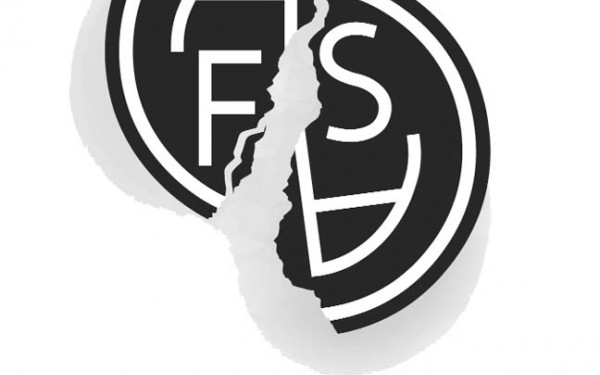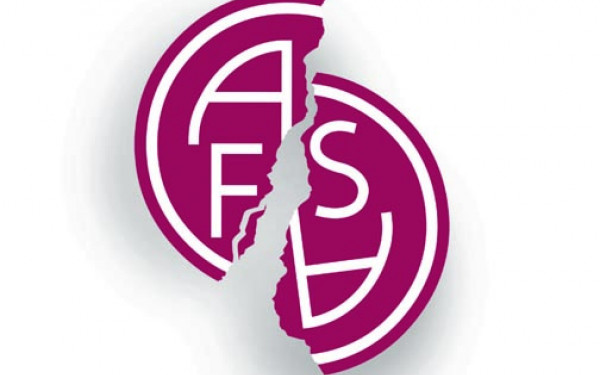Of Posters and Politics
ASFA Promotions Spark Controversy Online and In Chocolate
An incredibly charged viral dialogue developed over the last week, concerning representations of women on Arts and Science Federation of Association’s campaign and event posters.
The ASFA Pageant
An incident concerning some ASFA hopefuls in an otherwise quiet election period involved an article published in The Concordian last week, entitled “ASFA candidates look like beauty pageant contestants,” that asked: “Are these individuals running for student government positions or the chance to don a sparkly crown and sash?”
The article sparked a viral backlash on Facebook and in comment forums all over the web after the feminist blog Jezebel came across the article and called it out Feb. 9 for setting a double standard on female politicians.
The Jezebel post garnered 30,000 views in its first 12 hours online. It was then picked up by the Yahoo! News Canada blog The Daily Brew and The Yale Herald’s Bullblog, who ran with it, bringing unprecedented attention to the ASFA website and election in the process.
Christina Gentile and Diana Sitoianu, who are both currently running for VP Academic and Loyola, said they were both “in utter shock” when the article in The Concordian came out, but even more surprised at the viral attention that has befallen them as a result.
“[The layout of our posters] was the last thing I expected them to comment on,” said Gentile. “I didn’t know how to respond to it, […] but my disappointment was that they took my [contact] information but didn’t set up a chance to talk to us about our platforms in depth.”
Sitoianu—who wasn’t singled-out in The Concordian article, but found her platform poster all over the web last week anyways—was also stunned by the online attention.
“I’m [campaigning] to try to understand and fight for students needs, not dress up and broadcast my smile. That’s not what I’m here for—we’re here for students,” Sitoianu told The Link. “I would rather be on Yahoo! News for my platform points and what I have to offer as an intellectual—not as someone who looks like a beauty pagent contestant. […] It’s a disgusting double-standard that’s been brought up, focusing on superficial aspects that have nothing to do with the campaign.”The article made the top three most viewed news pieces on the Yahoo! website Thursday, something briefly celebrated at the ASFA council meeting that night.
Editor-in-Chief of The Concordian Sarah Deshaies also said she didn’t expect the article to “explode” like it did, but added that “people at Concordia seem to be more amused [than upset about it].” She said she hadn’t been confronted with any complaints at school about the opinions piece, as most criticism was launched on the web.
“In retrospect, I think the language it was couched in was very negative and it slipped through,” she said. “The Concordian is sorry that it does come across as extremely anti-woman,” she continued, adding that she’s always “hated it when female politicians get skewered for really silly things.”It was later revealed that in the original version of the piece, the author—19-year-old, first-year journalism student Kelsey Pudloski—included a critique of male candidates as well, but it didn’t make the final edit.
”Chicks” and Chocolate
The second ASFA poster-related scandal was the consequence of the initial poster design for a fundraising event called the “Ultimate Chocolate Wrestling Party.”
Originally showcasing two scantily-clad women wrestling in chocolate with various limbs in the air, the posters were changed Feb. 3—just over a week before the event took place—due to complaints from students, ASFA Member Associates and eventually the Dean of Students. Posters of the event were also removed from hallways by concerned individuals.
Jessica Young, an internal member of the Concordia Association of English Students who initiated the dialogue as “a concerned student,” spoke with the ASFA executive over the course of the month about her issues with the poster and its implications.
“What I did say, and what I will maintain, is that this event and its promotion uphold and encourage a culture that allows for certain types of sexual violence, reductionism and essentialism to remain in play at Concordia,” she told The Link. “I think it is well within ASFA’s mandate to keep these kinds of things in mind when putting out event posters and information.”
Young said ASFA should recognize that the sexist posters are part of a much larger and more systemic problem at and beyond the university.
“I’m all for having sexy, provocative events, but do them in a way that is working to reduce the amount of harm they could do,” Young suggested. “If you’re advertising, communicating or promoting, you should have a very clear understanding of what the implications of the messages you’re disseminating are.”
ASFA VP Communications Natasha Launi, who created the posters, said she was “really shocked” that the original image ignited such strong debate, saying that the images went through various committees and executive bodies without comment before being put up around campus.
She also said the event wasn’t hindered by the controversy and was a “huge success,” hosting over 700 people and raising $4,000 for various volunteer initiatives.
“I really want to continue to do creative parties,” she said. “[Opponents of the posters] were calling me sexist towards women, and I am a woman and I don’t understand, because I made sure that both guys and girls were both wrestling. […] I think the biggest problem was communication between everybody.”
Launi and the ASFA executive also took it upon themselves to create the “ASFA Safe Zone Policy”—the organization’s first official policy guaranteeing LGBT-friendly space for their events.
Created for the chocolate wrestling event, Launi described the policy as a means for the lesbian, gay, queer, bisexual and transgendered community “to feel comfortable and safe at the party because no one’s going to be commenting that things are ‘gay’ or anything like that.”
The policy outlined a zero-tolerance rule for homophobic, aggressive or derogatory remarks from participants and patrons of the chocolate wrestling event, and the policy will ostensibly be used on parties in the future. But the policy is a gesture Young called “static.”“It’s completely insufficient to say we’re going to put a ‘safe zone’ policy into ASFA bylaws, because it doesn’t accomplish what safe space really is, or what it takes to foster,” she said. “It brings up a safer space mandate, which is great, but these things just can’t be put down in point form. It’s not about achieving points one, two, three and then you have safer space—a dialogue needs to be had. This needs to be an active, ongoing process.
“It’s important to question what you’re seeing around you, and what it’s motivating,” she said. “What thought, or lack of thought, was behind those posters?”
This article originally appeared in Volume 31, Issue 23, published February 15, 2011.


_1_700_940_90.jpg)



